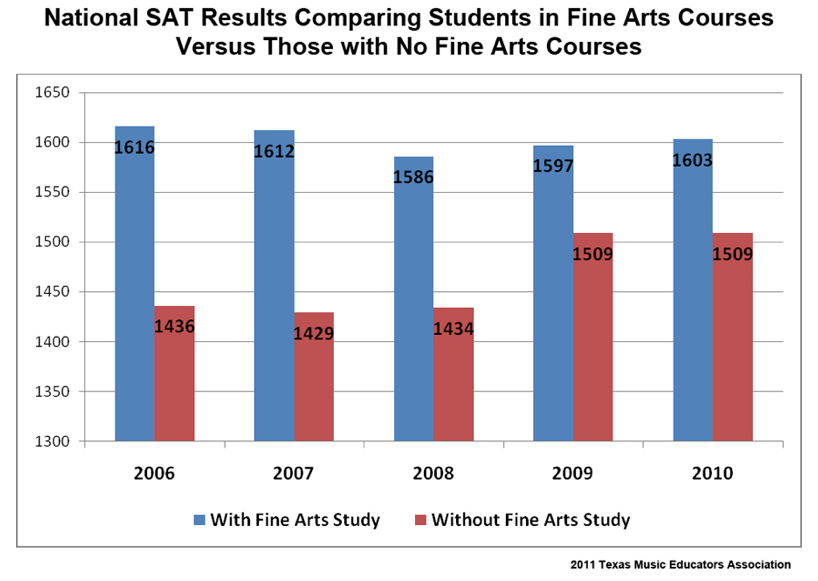Did you know that multiple studies have indicated a real correlation between music appreciation and test scores? Sure, correlation may not prove causation, but when multiple studies show that musical students outperform non-musical students, it’s hard to argue that the two aren’t somehow related.
One of the most telling statistics found, in fact, was that among Texas All-State musical performers, SAT scores were an average of twenty percent higher than those of students without a musical background.
Another study showed that simply being exposed to a musical program at all would boost student’s SAT scores up to 100 points. In fact, one website took this so far as to correlate favorite bands on Facebook among college students alongside the SAT scores from their colleges to create a list of musicians ranked by the test scores of their listeners.
(And just guess who’s most strongly associated with high scores. Hint: Ludwig Von __________.)
There really is little doubt that musical education, and especially piano training, can bring big benefits to a student in their teenage years. That, of course, will then translate into big benefits for the rest of their lives!
But why is this?
The Links Between Music Appreciation And Intelligence
So far, no one has found one single direct link between music and intelligence testing, and it’s likely that many of the benefits come about “inadvertently.” For example, learning to play piano requires patience, so a piano student is likely to show more patience when dealing with other matters such as hours-long standardized tests.
None the less, there are some solid arguments for ways that piano playing pays off, both directly and indirectly.
1 – Music is language.
Within the brain, music processing happens in the same areas as language processing. And language processing, in turn, “touches” on virtually every other aspect of a person’s brain. Learning multiple languages has already been shown to increase (tested) intelligence, so it only makes sense that piano training would bring similar benefits.
2 – Better bodily control.
One reason that piano playing is specifically more challenging than most musical instruments is that it requires ambidextrous use of the hands.
Playing a traditional instrument like a trumpet or saxophone is linear: both hands simply make one note. However, keyboard-based instruments require the student to use their hands independently. The left hand plays something totally different than the right hand.
Learning this level of leftright bodily control brings huge cognitive benefits, as well as increasing bodily-awareness.
3 – The rewards of dedication.
Finally, the psychological impact of piano training cannot be overlooked. It’s among the best ways to teach a student that yes, you CAN get better at a skill and you CAN feel rewarded by upgrading your own abilities.
This is something that’s often lost in the “everyone’s a winner” attitude of current schools. Piano-playing shows the benefits of actually excelling, rather than simply getting a gold star for effort.







